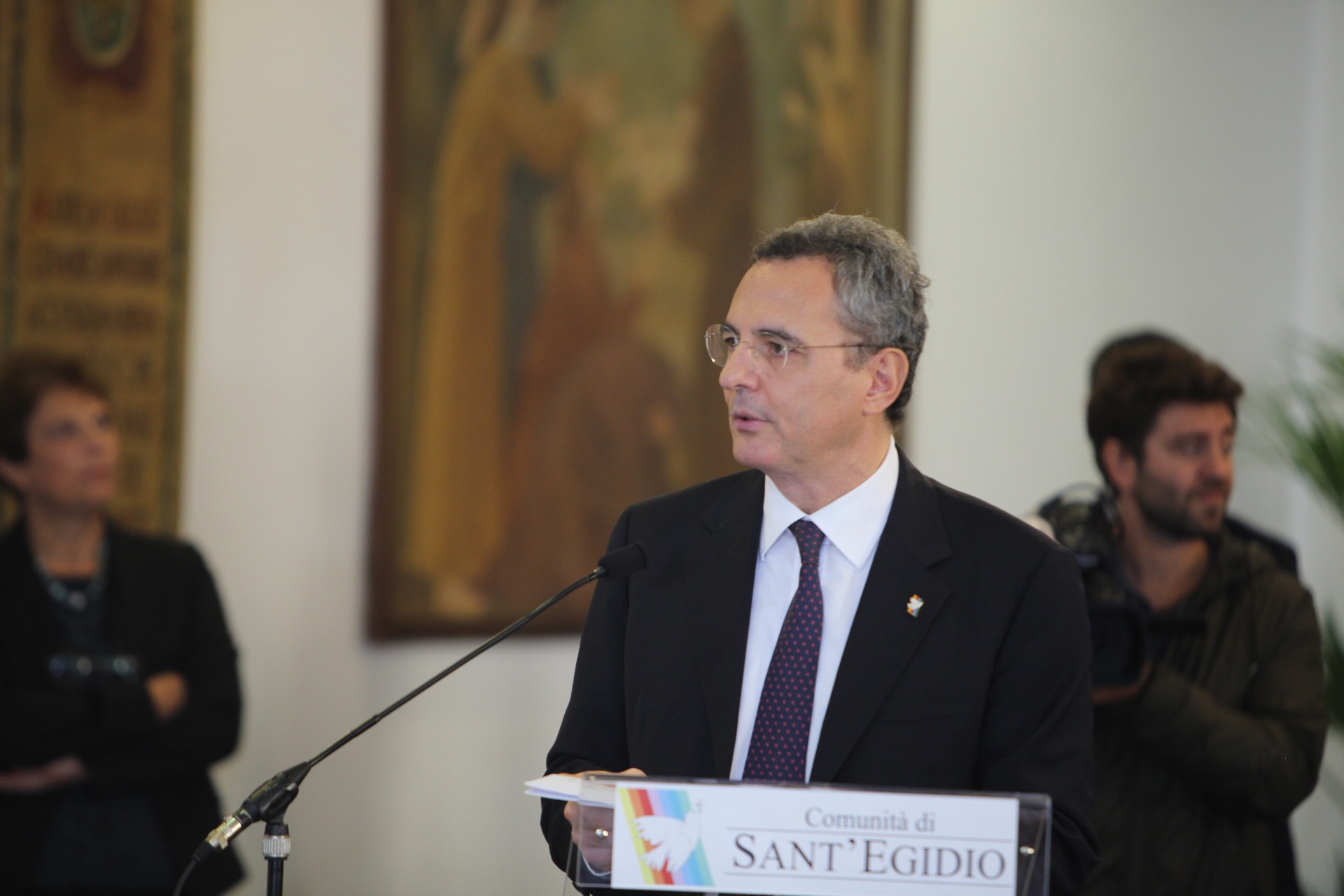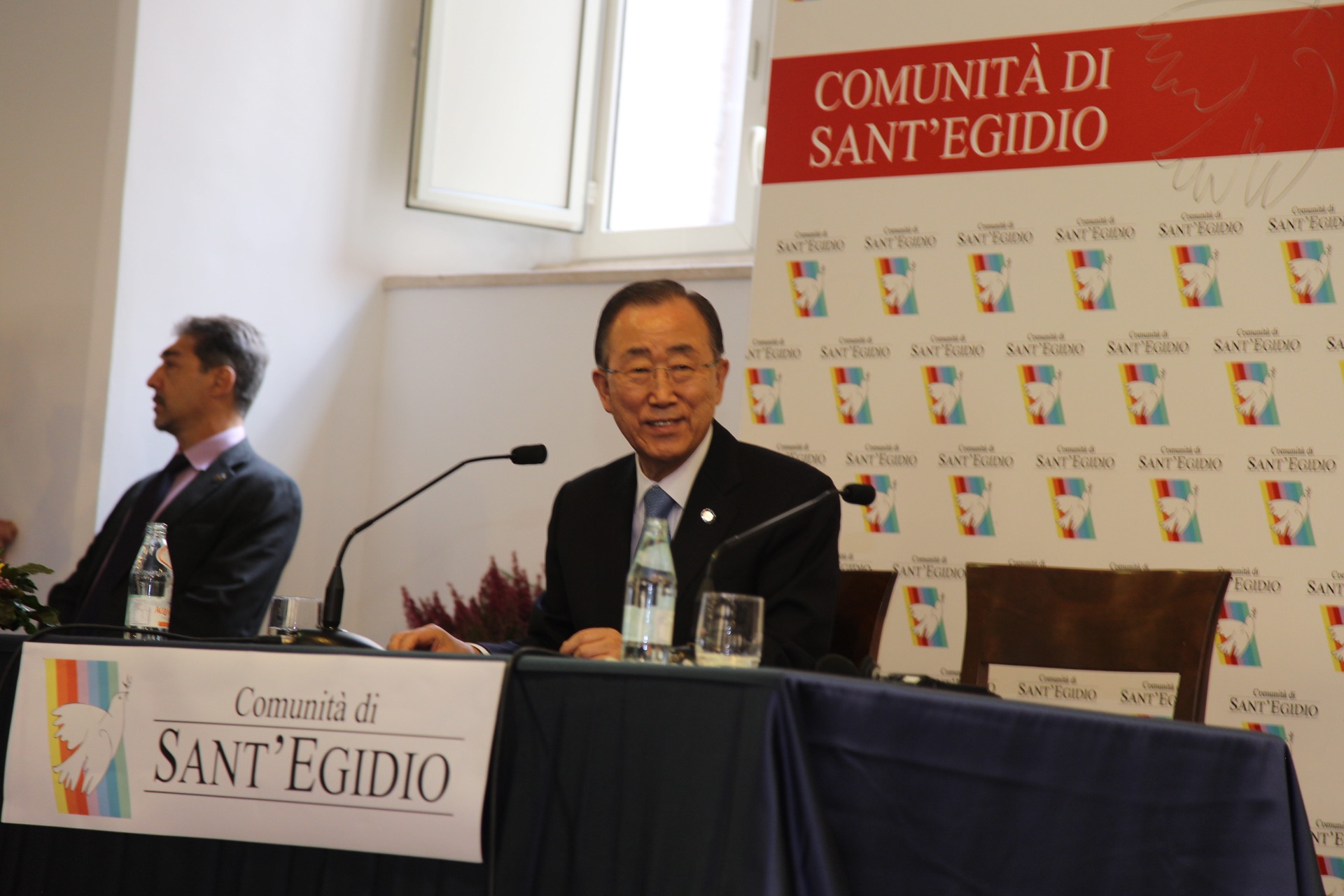 Mr. Secretary General, Mr. Secretary General,
Welcome to Sant'egidio! It is an honor and a joy to welcome you in our house after so many years of close and active cooperation with the United Nations for peace, hospitality to refugees, and development. You today see for the first-time, the place where the work for peace for Mozambique, Burundi, Guinea and other countries has been held.
We welcome you today with a rather special assembly, a small UN of peoples, gathered here in Rome, made of people who, for many reasons, often tragic, had to leave their land. Migrants represent in today's world one of the greatest "signs of the times", as Jesus would say. We must look together at this sign of the times - that of migration - to understand how to make this phenomenon more human, how to save people's lives in danger because of war, drought, the consequences of unsustainable development. We must explain to our societies that welcome is both a duty and an opportunity. The UN through many instances, and primarily with the UNHCR plays a role of world consciousness at this level (and I greet the UNHCR representative).
Sant'Egidio has been engaged for more than thirty years on this frontier and has made of hospitality to migrants and refugees one of the cornerstones of its commitment: helping in drafting papers for documents, working on integration, starting with language and school and creating a peaceful movement, “People of Peace”, that in every city of Europe lives the reality of peace and coexistence.
Some representatives are with you today.
In Europe, as you know, in recent months, we have a seen a growing a phenomenon of welcome to refugees that is unprecedented. It is a sign of hope and a real surprise of history. It should be encouraged and supported. The images of the many tragedies shook the consciousness of many Europeans .: from Lampedusa to Kos, from the streets of Austria to the fences of Ceuta and Melilla, from Calais to the fences in Hungary. It is the hour of welcome and integration and we want to support it!
To look deep into the suffering and hopes of men, women and children in search of a new life will be the litmus test of the ability of our communities to promote a truly human culture, which as Pope Francis says is "the culture of welcome and solidarity, according to which no one should be considered useless, misplaced or discarded."
 War is the mother of all poverty, said Prof. Andrea Riccardi. We have seen, known, and experienced the disastrous consequences of war in the lives of many people. You represent the greatest world instance for peace, also thank to your commitment to reform of the structures of the UN in this field. War is the mother of all poverty, said Prof. Andrea Riccardi. We have seen, known, and experienced the disastrous consequences of war in the lives of many people. You represent the greatest world instance for peace, also thank to your commitment to reform of the structures of the UN in this field.
Today we would like to reiterate our commitment "to exhaustion" for peace and conflict resolution. We will be alongside the UN on this, with our poor efforts, our passion, our faith, our human experience. We have seen too many people suffer from war. This suffering touched us and interrogated us. It is time to work for peace, including through dialogue between religions, because it is the time of development. The world - thanks to the UN - since September has a new agenda of global development: the objectives of sustainable development, which is valid for the next fifteen years and built around seventeen major objectives that aim to end poverty, to promote the welfare of citizens and protect the environment. It is - as we read in the text - an " absolutely ambitious and transformative vision." These are important and challenging words in a time like ours, marked by the absence of vision for the future. You, Mr. Secretary General, called it "the agenda of the people." We stand by you to achieve it. Thank you.
|

